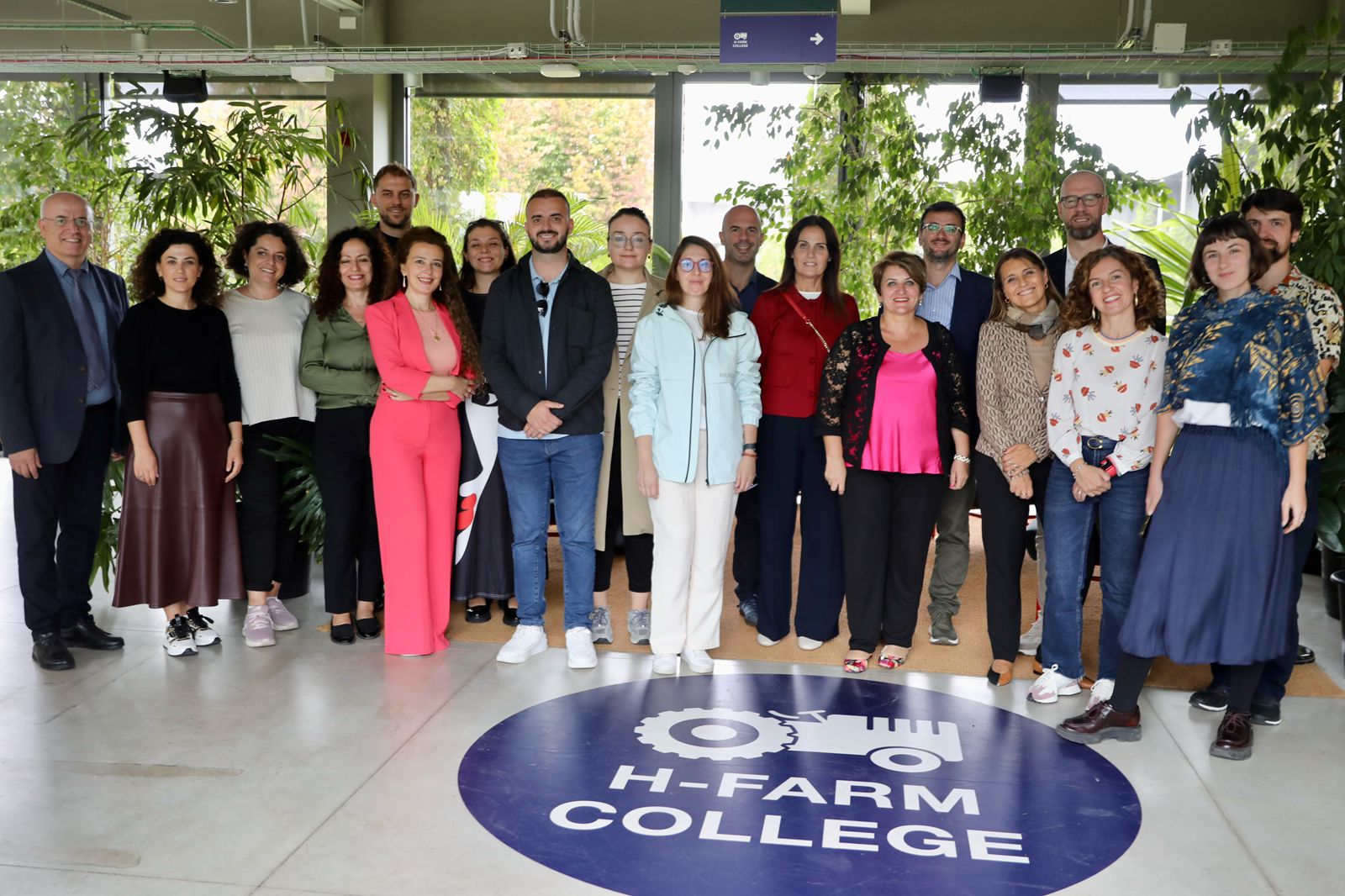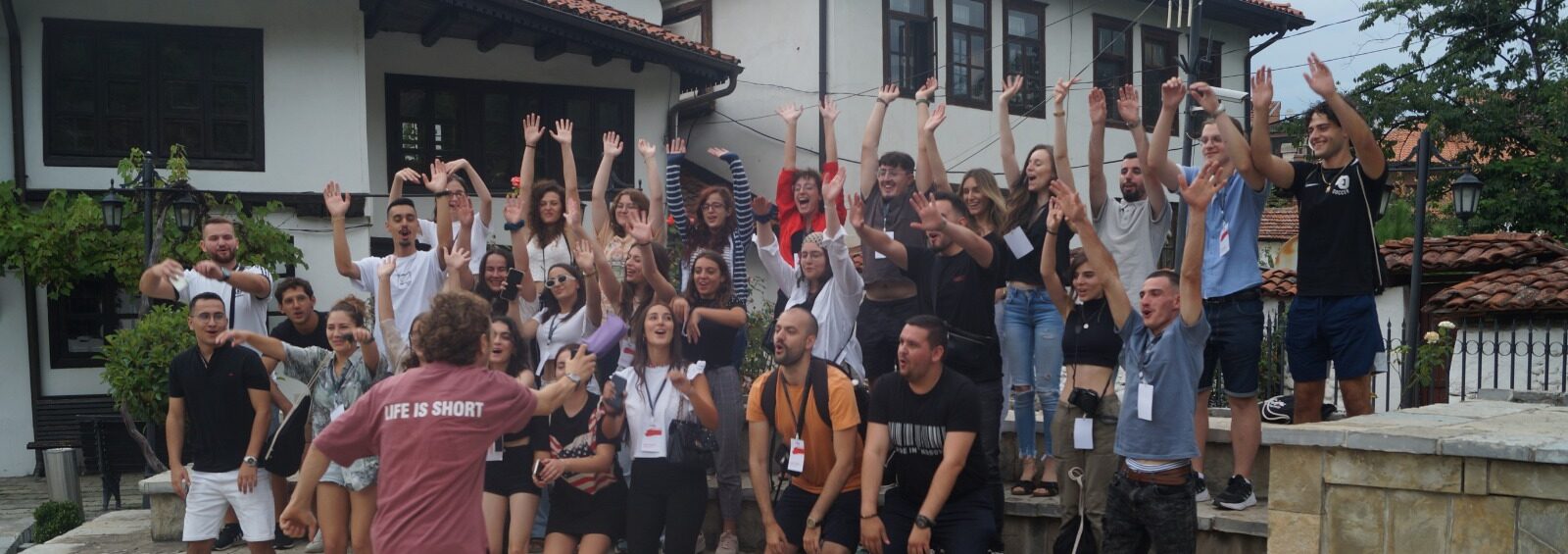GERMIN organized two crucial meetings in Germany between December 12 and 14, held respectively in Berlin and Hamburg, focusing on engaging the Albanian diaspora in discussions concerning their pivotal role in shaping policies for Kosovo’s development.
The primary objective of these meetings was to analyze the specific needs of the diaspora and contribute to ongoing legislative initiatives aimed at enhancing their involvement in Kosovo. A comprehensive summary of these discussions and analyses will be submitted to the Ministry of Foreign Affairs and Diaspora to inform the development of the new diaspora strategy and legislation.
In the initial meeting on December 12, convened at the Embassy of the Republic of Kosovo in Berlin, GERMIN engaged with a segment of the Albanian diaspora community in Germany. The focus was on exploring their potential contributions to Kosovo’s policy development, alongside addressing their needs and challenges in connecting and engaging with state institutions.
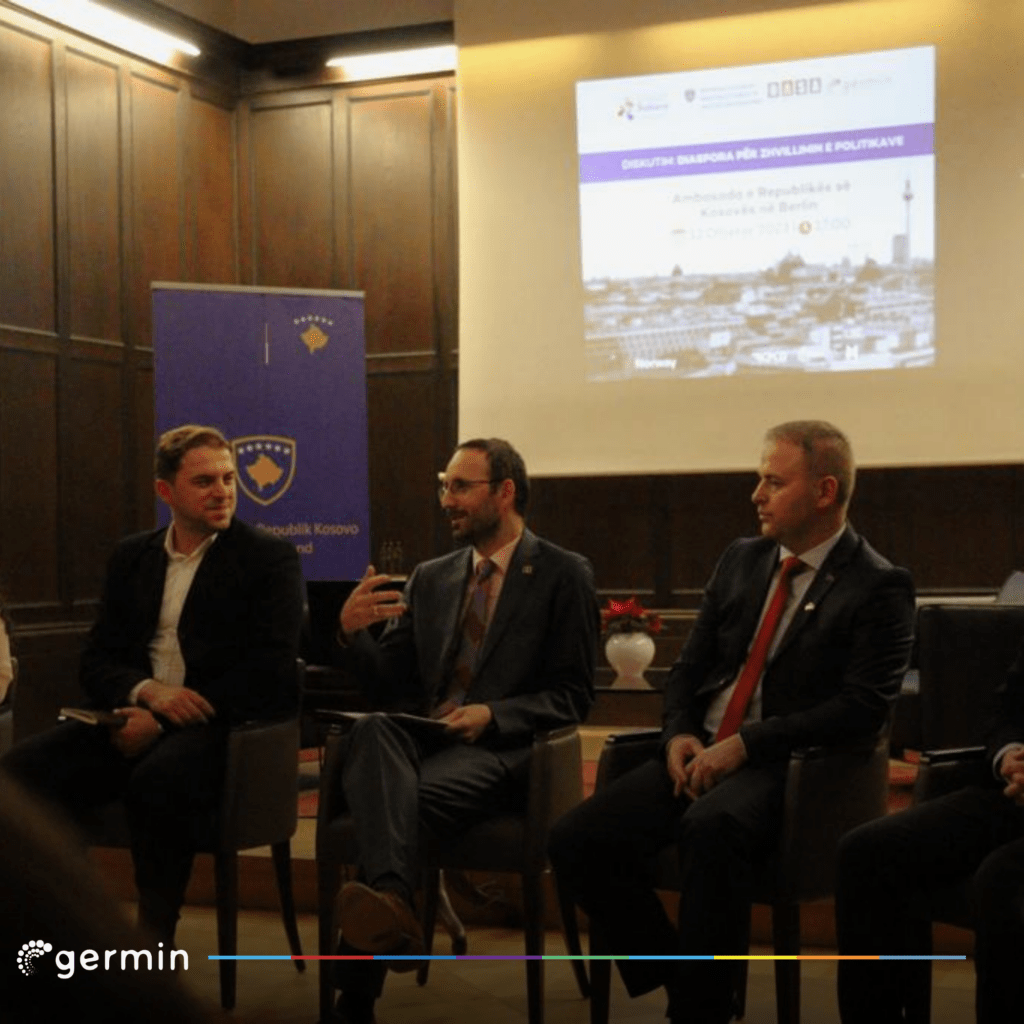
At the onset of this meeting, the attendees were introduced by Mr. Faruk Ajeti, Ambassador of the Republic of Kosovo in Berlin, and Blerta Lazebegu, President of the Organization of Academies and Students of the Albanian Diaspora (OASA) in Berlin. Meanwhile, Lirim Krasniqi, Co-Executive Director at GERMIN, informed the attendees about the purpose of the ‘Diaspora for Policy Development’ project.
During the open discussion, participants shared their opinions and suggestions regarding the new diaspora strategy and law, which the Ministry of Foreign Affairs and Diaspora is expected to publish for public consultation soon.
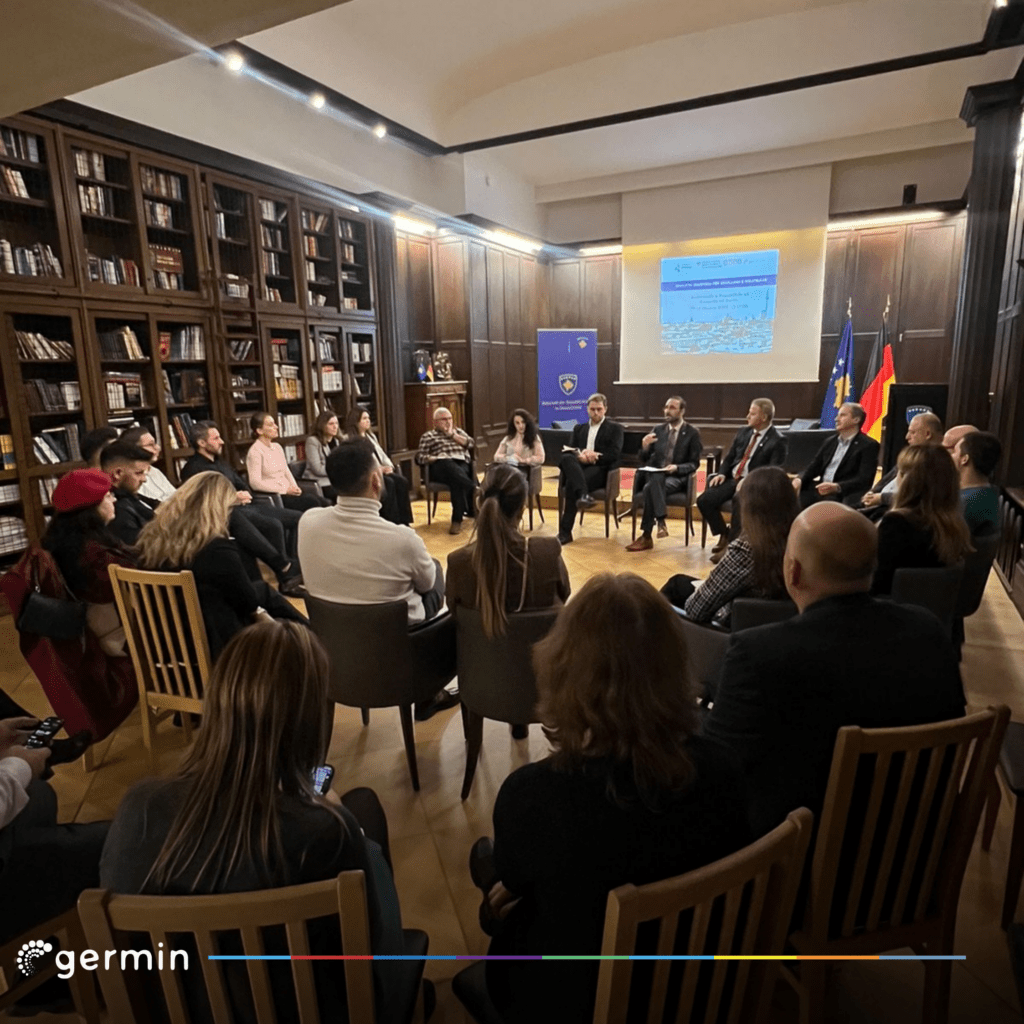
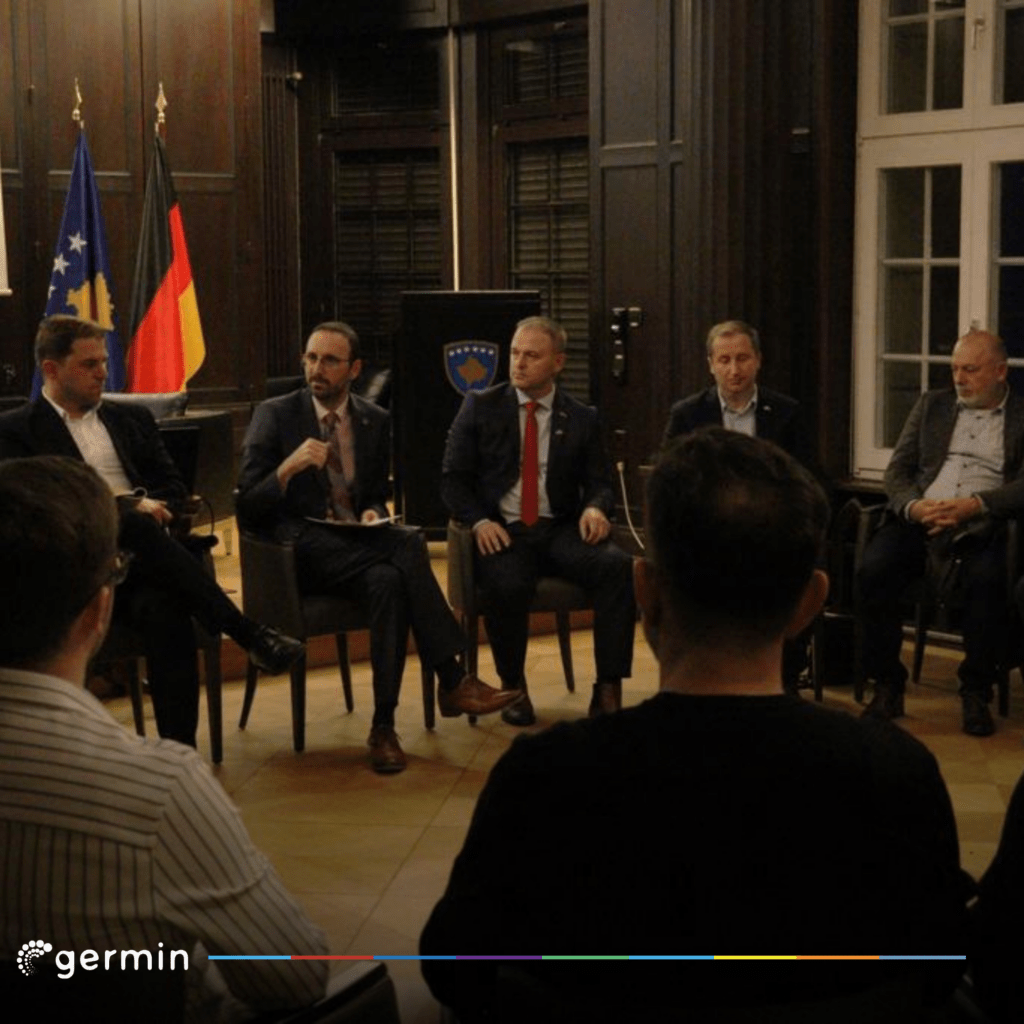
The discussion highlighted several key challenges, including barriers and prospects for learning the Albanian language overseas, the need for better organization within diaspora associations, and the complexities of bureaucratic procedures for investment and economic involvement in Kosovo. Additionally, the registration of diaspora members emerged as a significant topic of discussion during the meeting.
Meanwhile, on December 14, GERMIN convened the second meeting with the Albanian diaspora in Hamburg, Germany. This gathering was a pivotal part of the ongoing dialogue surrounding the diaspora’s impact on policy development in Kosovo.
Organized in partnership with the association ‘ODA e.V. Hamburg – Organization deutsch-albanischer Akademiker,’ this meeting was also supported by the Consulate General of the Republic of Kosovo in Hamburg and held at its premises.
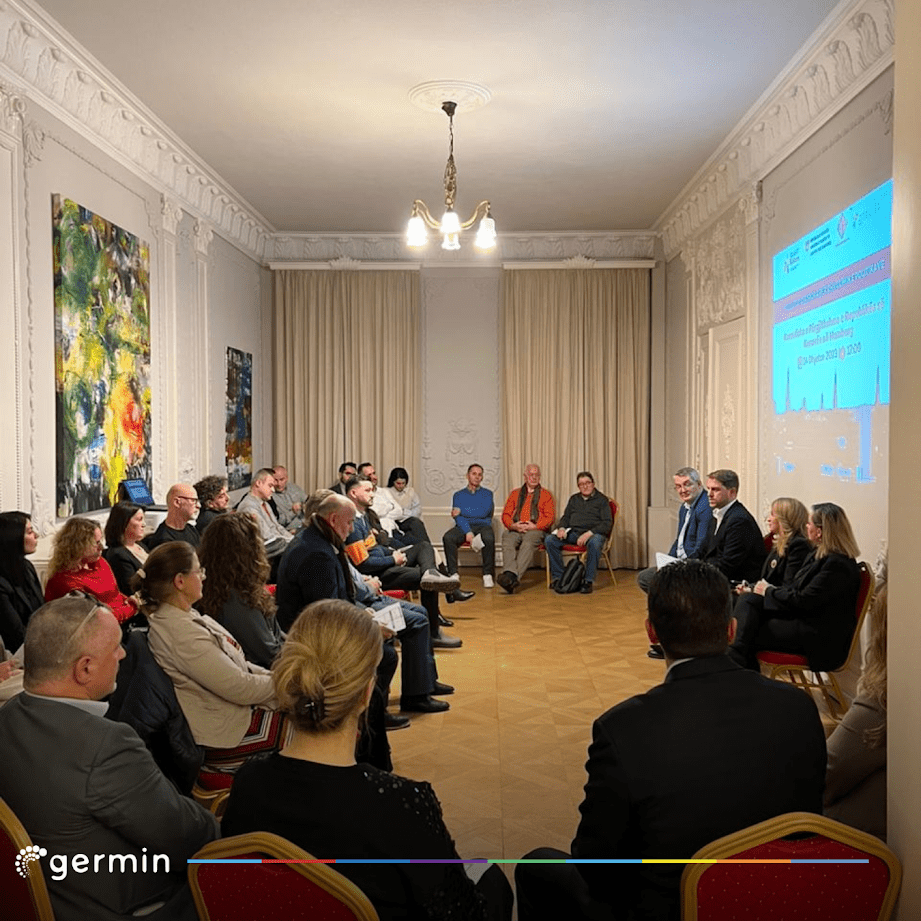
The opening speech was held by Mrs. Saranda Osmani, U.D. Consul General of the Republic of Kosovo in Hamburg and Muhamet Idrizi, Chairman of the Chamber of Hamburg. Meanwhile, Lirim Krasniqi, Co-Executive Director at GERMIN, moderated the discussion, which brought together all generations of compatriots in Hamburg, from the first immigrants of the 60s to those who were born or moved to the area in recent years of Hamburg.
Among the key topics of discussion were: learning the Albanian language abroad, the organization of compatriots in professional associations, problems with dual citizenship and documentation on ancestry in Germany, public diplomacy, as well as the organization of an economic/business character in relation to the mother country. The discussion also included the topic of diaspora registration and access to information on services in Kosovo.
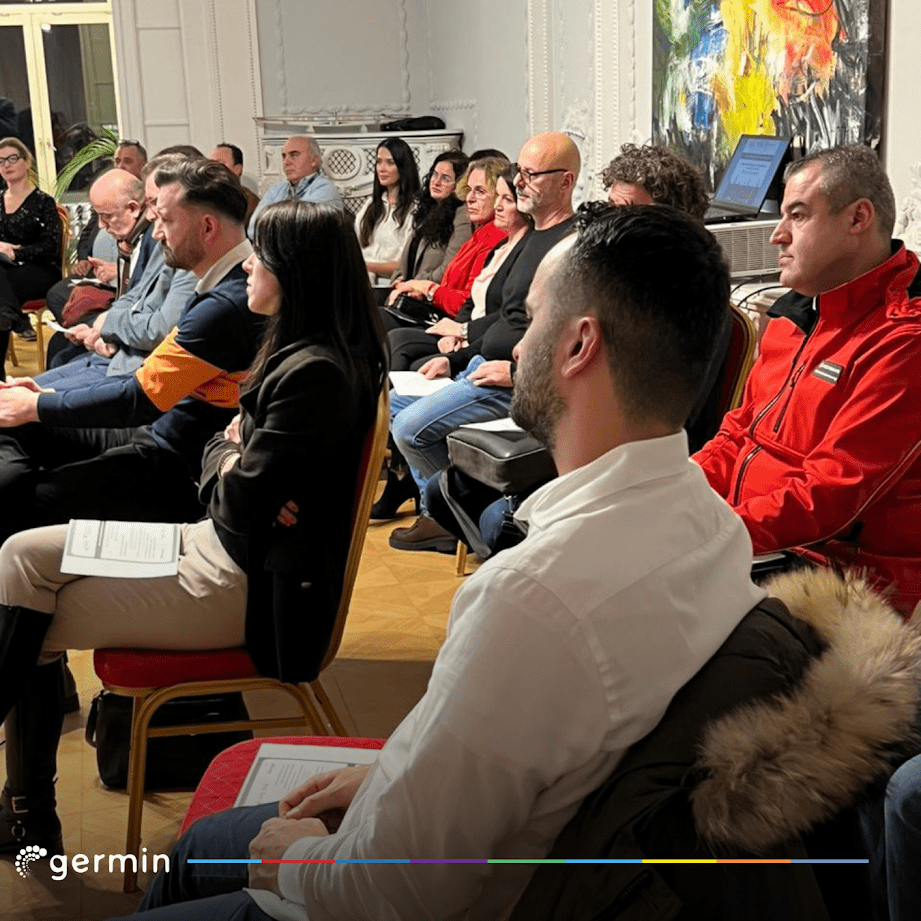
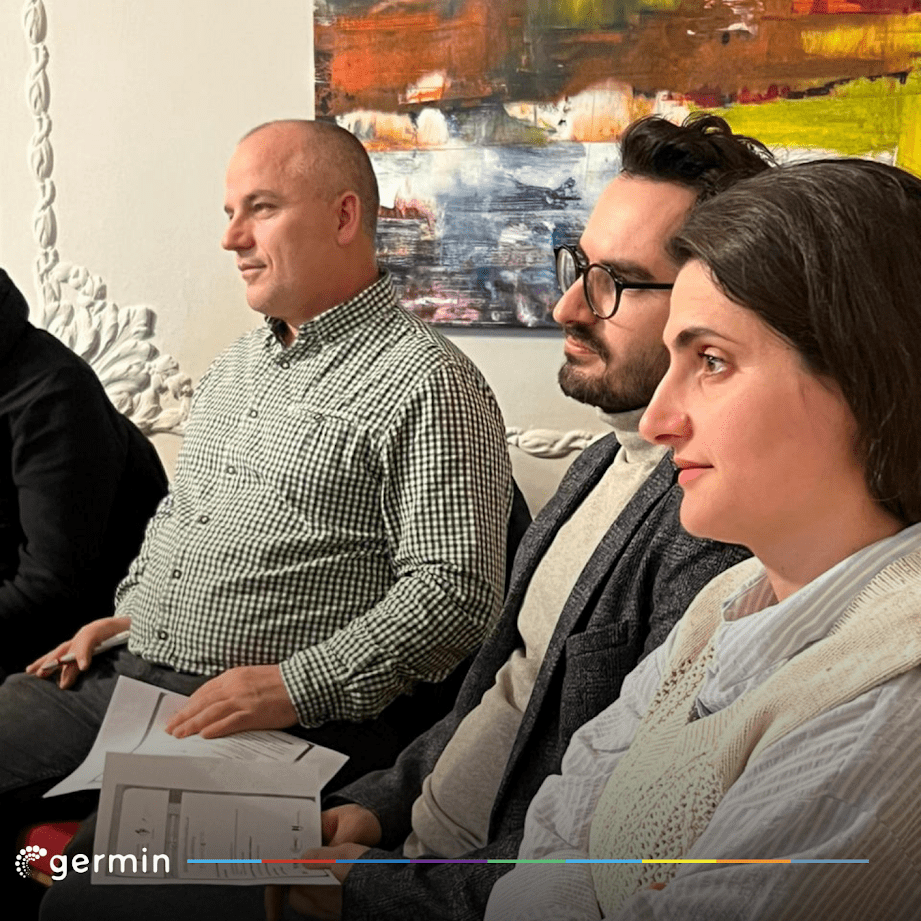
In the meeting, among other things, the new law and strategy of Kosovo for the diaspora was discussed, which is expected to be published for public consultation by the Ministry of Foreign Affairs and Diaspora.
The summary of discussions from this meeting will be analyzed further with the aim of inclusion in the strategy and new legislation for the diaspora. An advisory group will soon be formed for advocacy to the Ministries and bodies of the Assembly of Kosovo.
This discussion took place with the support of the regional project “SMART Balkans – Civil Society for Common Values in the Western Balkans” implemented by Centar za promencije členi društva (CPCD) in cooperation with the Institute for Democracy and Mediation (IDM), and the Center for Research and Policymaking (CRPM) and financially supported by the Norwegian Ministry of Foreign Affairs (NMFA).
The content of this post is the sole responsibility of GERMIN as the project implementer and does not necessarily reflect the views of the Norwegian Ministry of Foreign Affairs (NMFA).
